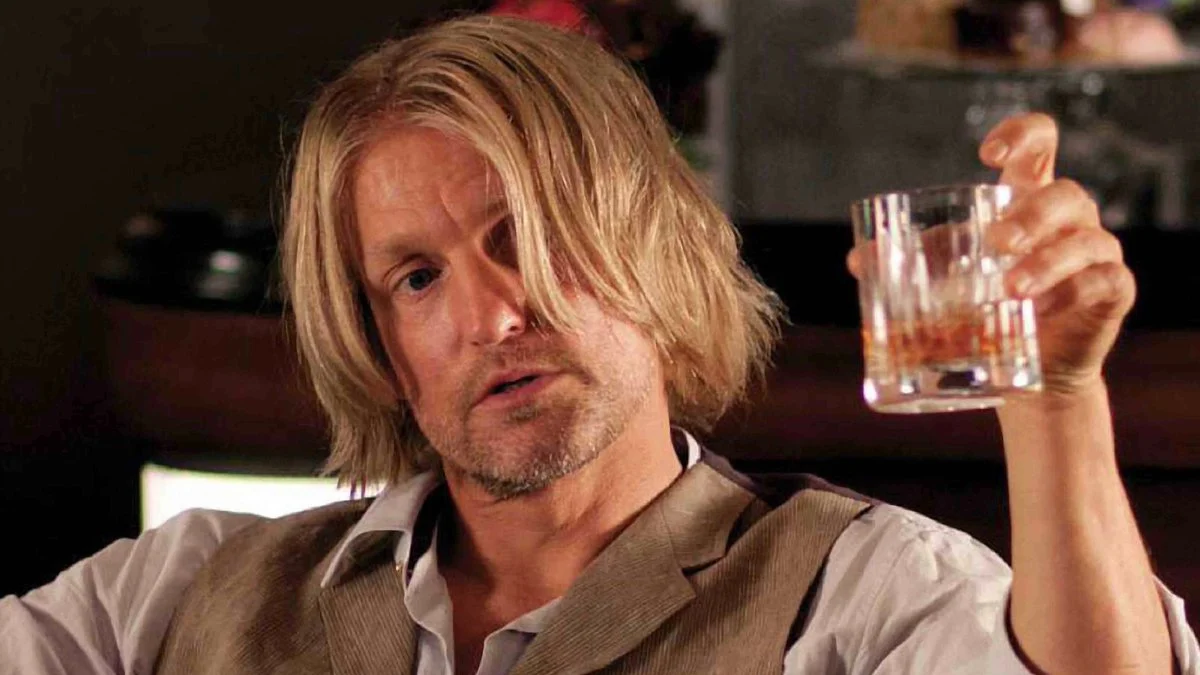Get ready to hop into a time machine as we return to the 50th annual Hunger Games. However, many of our favorite cast members will sadly not be there.

Suzanne Collins’s 2008 dystopian young adult novel, “The Hunger Games”, captivated audiences worldwide with its gripping narrative and powerful themes. Set in the totalitarian nation of Panem, the story follows Katniss Everdeen, a teenage girl who volunteers to take her younger sister’s place in a televised fight to the death known as the Hunger Games. This act of selfless courage sparked a rebellion against oppression, resonating deeply with readers.
The immense popularity of the novel led to a highly successful film adaptation directed by Gary Ross in 2012. The film remained faithful to the core themes of the novel, showcasing Katniss’s (played by a then-unknown Jennifer Lawrence) journey as a tribute forced to fight for survival. Lawrence’s powerful performance propelled her to superstardom, perfectly capturing Katniss’s fierce protectiveness and resourcefulness.
The supporting cast also contributed significantly to the film’s success. Josh Hutcherson portrayed Peeta Mellark, Katniss’s fellow tribute and reluctant ally, while Liam Hemsworth brought to life Gale Hawthorne, her childhood friend and hunting partner. The compelling chemistry between these three actors fueled the emotional core of the story.

The Hunger Games became a box office juggernaut, grossing over $694 million worldwide. Beyond its financial success, the film resonated with viewers for its exploration of themes like survival, rebellion against oppression, and the enduring power of hope. This impact spawned three sequels: The Hunger Games: Catching Fire (2013), The Hunger Games: Mockingjay – Part 1 (2014), and The Hunger Games: Mockingjay – Part 2 (2015).
Collectively, the franchise grossed over $2.9 billion globally, solidifying its place as a pop culture phenomenon. The Hunger Games sparked important conversations about social inequality, the manipulation of media, and the courage required to defy authority. The iconic image of Katniss raising three fingers in defiance transcended the film, becoming a symbol of resistance adopted by real-world activists.
In 2023, the dystopian world of Panem returned with the prequel film The Hunger Games: The Ballad of Songbirds & Snakes. This film explored the origins of the brutal Games and the rise of a familiar villain – President Snow – set 64 years before Katniss’s rebellion.
The film introduces a young and ambitious Coriolanus Snow (Tom Blyth), a Capitol student determined to revive his family’s fading prestige. His life takes an unexpected turn when he’s assigned to mentor Lucy Gray Baird (Rachel Zegler), a tribute girl from the impoverished District 12.
Zegler, fresh off her success in West Side Story, delivers a captivating performance as Lucy Gray, a talented and fiery singer who uses her voice to challenge the Games’ brutality. The film also features established actors like Viola Davis as the formidable Head Gamemaker, Dr. Volumnia Gaul, and Hunter Schafer as Snow’s cunning cousin, Tigris, whose role proves pivotal in his rise to power. These complex character relationships add layers of intrigue to the story.
While not achieving the same box office heights as the original trilogy (grossing over $337 million worldwide), The Hunger Games: The Ballad of Songbirds & Snakes received mixed reviews. Some critics praised Zegler’s performance and the film’s visual spectacle, while others criticized the pacing and felt it lacked the emotional depth of the previous films.

Despite these mixed reviews, The Hunger Games franchise remains a significant cultural touchstone. It continues to captivate audiences with its exploration of timeless themes, its well-developed characters, and its powerful message of hope in the face of oppression.
With such immense success, Lionsgate has already green lit the next installment of the franchise.
A new chapter in the Hunger Games saga is set to hit theaters on November 20, 2026. Titled The Hunger Games: Sunrise on the Reaping, the prequel film will transport viewers back 24 years before the events of the original trilogy. The story unfolds on the morning of the highly anticipated 50th Hunger Games, also known as the Second Quarter Quell, promising a fresh perspective on the brutal games and the dystopian world of Panem.
With the new film, however, we will have to see multiple characters recast.
With the movie likely focusing on Haymitch Abernathy, the first-ever District 12 winner who we know will win the 50th Hunger Games, it would likely not make too much sense to see Woody Harrelson back in the role, as we would be going back in time by around 25 years, and he would have to look a lot younger. Knowing that, a recast will be likely.

The upcoming prequel film, The Hunger Games: Sunrise on the Reaping, presents a unique casting challenge regarding the iconic villain, President Snow. Set 24 years before the events of the original trilogy, the film will depict a middle-aged Snow, necessitating a recasting decision.
This situation arises due to the significant age difference between the previously portrayed Snows and the character’s portrayal in “Sunrise on the Reaping.” Donald Sutherland, who delivered a chilling performance as Snow in the original films, is nearing 90 and would not be a suitable fit for the prequel’s younger iteration of the character.

While The Hunger Games: The Ballad of Songbirds & Snakes (released in 2023) successfully introduced a young Coriolanus Snow through Tom Blyth’s exceptional portrayal, the prequel’s timeframe positions Snow as approximately 40 years older. Despite Blyth’s compelling performance, the age difference necessitates yet another casting decision to maintain narrative consistency and believably portray Snow’s progression through the timeline.
This upcoming recasting marks the second time in a relatively short timeframe (three years) that the role of President Snow will be filled by a new actor. This approach, while seemingly unusual, is crucial to accurately represent Snow’s age and development as a central antagonist within the expanded Hunger Games universe.
While The Hunger Games universe is set to expand, the films were recently removed entirely from Netflix.
Are you excited to see The Hunger Games film universe grow?
